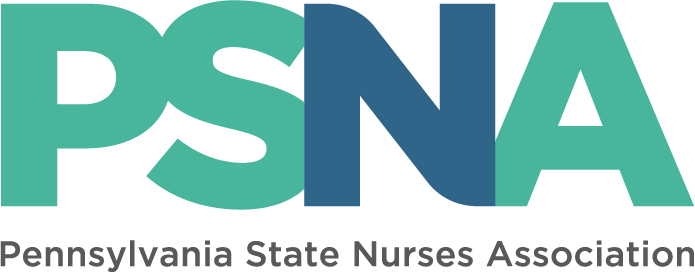Medical Cannabis Act: In Spring 2016, Senate Bill 3, “The Medical Cannabis Act,” was signed into law. This Act provides for the medical use of cannabis in Pennsylvania for the treatment of certain medical conditions. The bill allows for licensed growers, processors, and dispensers. Medical cannabis may be mixed into food and drinks to assist with ingestion. However, food mixed with medical cannabis may not be sold. PSNA was successful in having CRNPs included into the bill. This language includes a written agreement in collaboration with a physician. PSNA was unsuccessful in having RNs included in the language to oversee dispensing of cannabis.
Safe Nurse Staffing Legislation: PSNA’s Safe Staffing initiative amends Pennsylvania’s Health Care Facilities Act by providing for professional nurse staffing standards. It empowers nurses to create patient-safety staffing plans aimed at reducing medical errors, saving lives, and confronting chronic understaffing. Rather than create a ratio approach, this will create a committee of at least 50% bedside nurses and 50% other personnel. It requires a 66% vote on final adoption of staffing plans. The model will consider variables (for example, patient acuity, unit layout, and ancillary support) to determine the appropriate number, skills, experience, and education of the nurses on a given unit. The legislation was referred to the House Health Committee. Safe Nurse Staffing will be re-introduced in 2017.
CNO of the Commonwealth: It is imperative that RNs work as full partners with physicians and other health professionals to realize the goals of healthcare reform. Governor-appointed cabinet officials and committee members lack the engagement of RNs – the largest (and most trusted) segment of providers. House Bill 389 adds language to establish the office of the Chief Nursing Officer of the Commonwealth within the Department of Health. Representative Donna Oberlander has agreed to re-introduce this legislation in 2017.
Registered Nurse Delegation: Did you know that the Commonwealth lacks specific delegation language in the Nurse Practice Act? Nurses are educated and accountable for the nursing care provided to healthcare consumers. In addition, they retain accountability for patient outcomes associated with delegation. House Bill 479 amends the Professional Nursing Law by allowing RNs to delegate nursing functions when certain conditions are met. This unanimously passed the House Health Committee on April 4, 2016. PSNA will re-introduce this legislation in 2017.
Staffing Transparency: PSNA supports House Bill 2244, which requires quarterly hospitals reports by the Department of Health. The online reports will allow consumers and direct care workers to easily access comparative information in order to make informed decisions on where to seek care and/or employment. This will be re-introduced in 2017.
Assault on a Health Care Practitioner: PSNA supports House Bill 1219 (by Rep. Judy Ward, RN). This amends Title 18 (Crimes and Offenses) in assault, adding healthcare practitioners in a healthcare facility and employees of public transportation to the scope of the offense of aggravated assault. This passed the House on February 12, 2016 by a vote of 177-0. HB 1219 was referred to the Senate Judiciary Committee where it was not acted upon; it will re-introduced in 2017.
Diabetes Educator License: PSNA opposes House Bill 1851. This amends the Professional Nursing Law regulating the practice of diabetes education and providing for the licensure of diabetes educators. It provides for: qualifications for licensure; people entitled to practice; reporting of multiple licensure; refusal, suspension, or revocation of license; and penalties. This requires the State Board of Nursing to establish rules and regulations for the practice of diabetes educator. A House Professional Licensure Committee hearing was held on May 23, 2016. PSNA testified in opposition to the bill. This will re-introduced in 2017.
Diabetes Administration in Schools: PSNA opposes House Bill 1625. This amends the Public School Code relating to school health services. It allows a school employee who is not a licensed healthcare provider to assist diabetic students with monitoring blood glucose and administering treatment. The bill passed the House in December 2015 and was referred to the Senate Education Committee. Diabetes language was added into the Omnibus School Code (HB 1606) as part of the 2016-17 budget. HB 1606 was signed on July 13, 2016 and is now Act 86 of 2016.
CARE Act: PSNA was neutral on HB 1329 / Act 20 of 2016. The Caregiver Advise, Record, Enable Act requires that the name of the family caregiver is recorded when a family member is admitted into a hospital or rehabilitation facility. The family caregiver is notified if the family member is to be discharged to another facility or home. The facility must provide an explanation and live instruction of medical tasks that the family caregiver will perform at home. This was signed into law by Governor Wolf on April 20, 2016.


